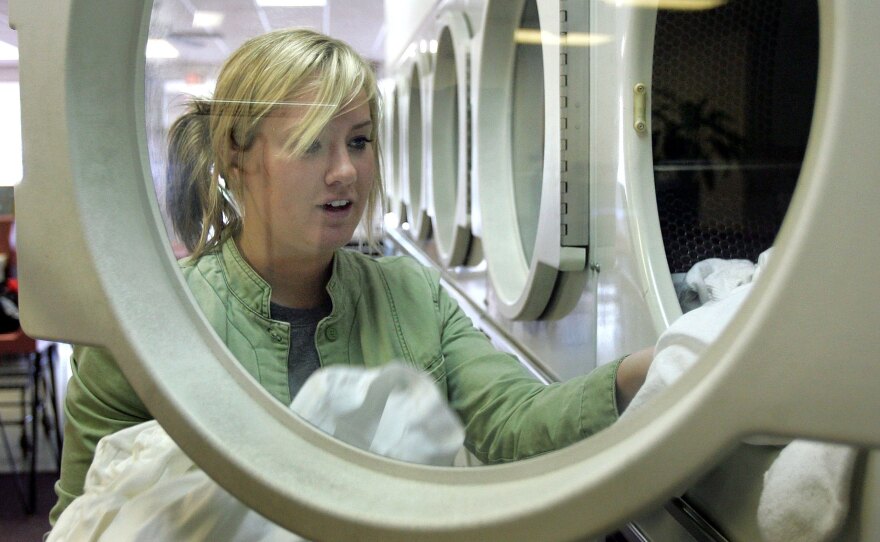
Sick of doing the laundry? The latest hot Silicon Valley startup, Washio — the subject of a new profile in New York Magazine — lets you press a button on your phone and someone will come and pick up your laundry, or your dry cleaning.
If you actually prefer to do your own laundry in the Bay Area but the dryer's broken, the startup Handybook provides on-demand repairs for less than the cost of a traditional handyman. It offers superfast housecleaning services, too.
Other tasks can be handled with the same ease, thanks to the proliferation of niche startups. In San Francisco, you can order gourmet meal-delivery from SpoonRocket with the tap of an app, use Postmates to deliver virtually any item or BloomThat to send flowers on demand.
And of course, in several American cities you can easily open an app to get yourself an Uber ride instead of God forbid, standing at the corner and waiting for a cab to come by.
This is all to say that the excitement for niche services like these — and the willingness for venture capitalists to fund them — is quickly eliminating all your first world problems.
By solving these "problems," we're getting our time back — less time stuck in traffic to pick up a meal, a few minutes saved by not having to make a phone call to order flowers, our weekend hours spared from the hassle of laundry. Arguably, this new free time will allow for more satisfying lives. At least that's the collective promise of these services. (As I've blogged about before, technologists tend to solve the problems they can see, so this situation also underlines the need for more socioeconomically, racially and age-diverse technologists.)
But are these startup companies actually making any money? They're likely profitless, and it doesn't matter, for now. New York Magazine's Kevin Roose explains:
"Together, they've formed the backbone of a strange urban economy: one in which massive venture-capital injections allow money-losing start-ups to flourish, while providing services that no traditional, unsubsidized business can match. It's an economy built on patience, and the hope that someday, after the land grab is over and the dust has settled, a better business model will emerge...."The metric [SpoonRocket] investors care about right now is user growth, not profits. And if, indeed, the company is selling meals for less than they cost to make, those investors are willing to fill the gap."
In the meantime, those of us who live in cities populated by these profitless startups can enjoy cheap, fast solutions to our everyday hassles. We can leave it to the companies — and their funders — to work out the business models while we enjoy a life of on-demand goods and services, delivered to our doors.
But you may want to get in on these services quickly. Washio's competitor, Prim, already folded in January.
Copyright 2014 NPR. To see more, visit http://www.npr.org/






